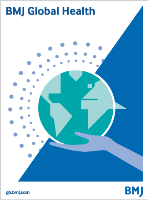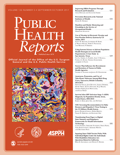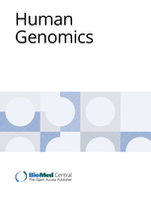
NEW GENETICS AND SOCIETY
Scope & Guideline
Bridging Genetics and Social Science for a Healthier Future
Introduction
Aims and Scopes
- Interdisciplinary Research on Genetics and Society:
The journal emphasizes research that integrates perspectives from genetics, sociology, law, ethics, and public health, fostering a comprehensive understanding of how genetic technologies impact societal norms and individual lives. - Governance and Policy Analysis:
A core focus is on the governance of genetic technologies, including the legal frameworks and ethical considerations that guide the use of genetics in healthcare, research, and public policy. - Public Engagement and Perception:
The journal prioritizes studies that investigate public perceptions of genetic technologies, including issues of trust, stigma, and the implications of genetic information for individual identity and community dynamics. - Cultural Narratives and Ethics:
Research that critiques and reshapes narratives surrounding genetics, such as maternal responsibility in epigenetics or the social implications of genetic ancestry testing, is a significant area of exploration. - Health Equity and Access:
The journal addresses disparities in access to genetic technologies and the ethical considerations surrounding informed consent and participation in genetic research, particularly among marginalized populations.
Trending and Emerging
- Human Genome Editing and Governance:
The exploration of human heritable genome editing and its governance is a rapidly growing area, addressing the ethical, legal, and social implications of editing technologies and their societal acceptance. - Reproductive Genetics and Autonomy:
Recent research has increasingly focused on reproductive autonomy in the context of genetic testing and prenatal screening, emphasizing the perspectives of various stakeholders, including healthcare professionals and affected individuals. - Public Engagement with Science and Technology:
There is a notable rise in studies examining public engagement with genetics, particularly in relation to social media and digital platforms, which reflects the changing landscape of how genetic information is disseminated and discussed. - Cultural Narratives around Genetics:
Emerging themes include the analysis of cultural narratives surrounding genetics, such as maternal responsibility and genetic ancestry, illustrating how societal values shape and are shaped by genetic discourse. - Ethics of Personalization in Medicine:
Research on personalized medicine is trending, particularly regarding ethical considerations and the societal implications of tailoring medical treatments based on genetic information, highlighting the need for responsible innovation.
Declining or Waning
- Traditional Genetic Determinism:
There has been a noticeable decline in discussions centered on genetic determinism, as contemporary research increasingly emphasizes the complex interplay between genetics, environment, and social factors. - Narrow Focus on Medical Genetics:
The journal is moving away from a narrow focus on medical genetics, as broader societal implications and interdisciplinary approaches gain prominence, reflecting a shift towards understanding genetics in a more holistic context. - Historical Perspectives on Genetics:
Papers that primarily focus on historical analyses of genetics have become less frequent, indicating a shift towards more current and applied research that addresses contemporary issues in genetics and society. - Biotechnological Innovations without Societal Context:
There is a waning interest in publishing articles that discuss biotechnological innovations in isolation from their social, ethical, and legal contexts, as the journal increasingly prioritizes interdisciplinary frameworks. - Genetic Privacy Concerns in Isolation:
While genetic privacy remains an important topic, the discussions have shifted from isolated concerns to more integrated analyses of privacy within broader societal and ethical frameworks.
Similar Journals

JOURNAL OF HUMAN GENETICS
Exploring the Frontiers of Human GeneticsWelcome to the Journal of Human Genetics, a premier publication in the field of human genetics, published by SpringerNature. With a commitment to sharing groundbreaking research, this journal has been at the forefront of genetic studies since its establishment in 1961, converging its focus in 1996 and continuing to evolve through 2024. It holds a respected Q2 ranking in both the Genetics and Clinical Genetics categories, reflecting its significant contribution to the scientific community. With a notable Scopus ranking of 23rd out of 99 in Clinical Genetics and 95th out of 347 in Genetics, the journal offers a platform for high-impact research that informs clinical practices and advances the understanding of genetic disorders. Operating under an open-access model, it ensures that findings are readily accessible to researchers, professionals, and students worldwide. Join us in exploring the complexities of human genetics and contribute to the ongoing discourse in this dynamic field.

JOURNAL OF MEDICAL ETHICS
Defining the Ethical Boundaries of HealthcareJOURNAL OF MEDICAL ETHICS, published by the esteemed BMJ PUBLISHING GROUP, is a leading journal that has been pivotal in advancing the discourse on ethical issues in healthcare since its inception in 1975. This UK-based journal, with an ISSN of 0306-6800 and an E-ISSN of 1473-4257, is well-regarded for its high-quality, peer-reviewed articles that delve into the complex moral dimensions surrounding medical practices, health policies, and social sciences. With a commendable impact, JOURNAL OF MEDICAL ETHICS has achieved Q1 quartile rankings across multiple categories, including Arts and Humanities and Health Policy in 2023, reflecting its significant influence and relevance in the field—ranked #23 of 552 in Arts and Humanities (Miscellaneous) with a 95th percentile, and #26 in Health Policy with a 91st percentile. Researchers, professionals, and students alike can benefit from the journal's commitment to fostering a deeper understanding of ethical considerations vital to the medical community, although it currently does not offer open access options. The journal's comprehensive examination of issues, ethics, and legal aspects continues to make it an essential resource for those dedicated to shaping the ethical landscape of healthcare.

South African Journal of Bioethics and Law
Fostering insights into the ethical and legal challenges in health.South African Journal of Bioethics and Law, published by HEALTH & MEDICAL PUBLISHING GROUP, stands as a vital academic platform for discussions at the intersection of bioethics and legal studies. With an ISSN of 1999-7639, this journal has embraced an Open Access model since 2008, ensuring global accessibility for researchers, practitioners, and students alike. Based in South Africa, the journal operates from PRIVATE BAG X1, PINELANDS, CAPE TOWN 7430, and features diverse articles that span a multitude of pertinent topics across health professions, law, and public health. It proudly holds a Q3 ranking in Health Professions and Law sectors, affirming its status within the scholarly community. Notably, for the year 2023, it has achieved impressive placements in Scopus ranks, reinforcing its commitment to disseminating high-quality research and fostering dialogues that influence policy and practice in these critical domains. Researchers exploring the intricate ethical and legal dimensions of healthcare will find this journal an indispensable resource.

BMJ Global Health
Transforming ideas into impactful health policies.BMJ Global Health is a premier open-access journal published by the BMJ Publishing Group, dedicated to advancing the field of global health through the dissemination of high-quality research, innovative ideas, and impactful policy analysis. Established in 2016 and based in the United Kingdom, this journal has rapidly ascended to prominence, evidenced by its solid impact factor and ranking in the Q1 category for both Health Policy and Public Health, Environmental and Occupational Health. With its commitment to open access, BMJ Global Health ensures that vital research is freely available to enhance public discourse and inform decision-making processes around the world. The journal welcomes contributions that address pressing global health challenges and offers researchers an influential platform to shape health practices and policies. With Scopus rankings placing it in the top percentile of its categories, BMJ Global Health is indispensable for anyone seeking to stay at the forefront of health discourse and practice.

PUBLIC HEALTH REPORTS
Advancing knowledge for a healthier world.PUBLIC HEALTH REPORTS is a premier journal in the field of public health, published by SAGE PUBLICATIONS INC in the United States. With its ISSN 0033-3549 and E-ISSN 1468-2877, this esteemed publication has been an influential voice in the discipline since its inception in 1945. Recognized for its rigorous scholarship, it currently holds a distinguished Q1 ranking in the 2023 category of Public Health, Environmental and Occupational Health, emphasizing its significance with a Scopus rank of #186 out of 665, placing it in the 72nd percentile. The journal aims to disseminate high-quality research that addresses pressing health issues and promotes evidence-based practices, making it a vital resource for researchers, professionals, and students alike. Although it is not an open-access journal, PUBLIC HEALTH REPORTS continues to offer extensive insights and advancements pertinent to the global public health landscape, thereby fostering a deeper understanding and engagement with critical health determinants. Researchers and health practitioners are encouraged to contribute to this dynamic forum where knowledge and innovation converge.

Acta Bioethica
Empowering Researchers with Open Access to Bioethical InsightsActa Bioethica is a pivotal open access journal published by the Universidad de Chile's Centro Interdisciplinario de Estudios Bioética, dedicated to the multidisciplinary exploration of bioethical issues in health policy and social sciences. Since its inception in 2000, the journal has fostered dialogue among researchers, professionals, and students, addressing the complexities of ethical practices in diverse health contexts. With an impressive commitment to accessibility, Acta Bioethica has become a vital resource for those engaged in understanding the ethics of healthcare in Latin America and beyond. Although currently ranked in the lower quartiles of Scopus in both health policy and social sciences, the journal is steadily gaining recognition for its unique contributions to bioethics. The journal accepts contributions in both English and Spanish, ensuring a wider reach and impact in the academic community. Located in Santiago, Chile, and active from 2007 to 2024, Acta Bioethica continues to be an essential platform for advancing research and discussions in the ever-evolving field of bioethics.

International Journal of Sport Policy and Politics
Unpacking the Complexities of Sport Policy and SocietyInternational Journal of Sport Policy and Politics is a premier academic journal published by Routledge Journals, Taylor & Francis Ltd, focusing on the intricate interplay between sports, policy, and societal dynamics. With an ISSN of 1940-6940 and E-ISSN 1940-6959, this journal serves as a vital platform for disseminating innovative research and scholarly discourse in the fields of social sciences and leisure management. The journal is recognized for its high impact, exemplified by its Q1 ranking in social sciences and Q2 in tourism, leisure, and hospitality management, signaling its wide-reaching influence. In its commitment to advancing knowledge, it offers a valuable resource for researchers, policymakers, and practitioners alike, fostering evidence-based decision-making in sport and related sectors. Since its inception in 2010, the journal has continuously provided critical insights into the intersection of sport policy and socio-political issues, shaping contemporary understanding and driving future research agendas.

Journal of Bioethical Inquiry
Advancing Discourse on Bioethical ChallengesThe Journal of Bioethical Inquiry, published by Springer, is a prominent academic journal in the fields of bioethics, health policy, and social sciences. Established in 2004 and running through 2024, it is recognized for providing a critical platform for the exploration of ethical issues arising in the contexts of healthcare and policy making. With an ISSN of 1176-7529 and an E-ISSN of 1872-4353, this esteemed journal holds a Q2 quartile ranking in both Health Policy and Health (Social Science) categories, indicating its significant impact and contributions to the field. It boasts impressive Scopus rankings, with a standing of #70 out of 371 in Social Sciences _ Health (Social Science) and #68 out of 310 in Medicine _ Health Policy, representing its relevance and authority in these domains. Although it does not currently offer open access options, the Journal of Bioethical Inquiry remains a vital resource for researchers, practitioners, and students eager to engage with the complexities of bioethical challenges and to advance the discourse on health policies.

Human Genomics
Shaping the Future of Molecular Biology and MedicineHuman Genomics, published by BMC, is a leading open-access journal dedicated to advancing the field of genomics and its applications in health and disease. Since its inception in 2003, the journal has provided a vital platform for researchers to disseminate groundbreaking findings related to genetic research, contributing significantly to areas such as Drug Discovery, Genetics, Molecular Biology, and Molecular Medicine, as reflected in its Q1 and Q2 quartile rankings throughout 2023. With an ISSN of 1473-9542 and an E-ISSN of 1479-7364, Human Genomics not only delivers high-quality, peer-reviewed research but also ensures accessibility to a broader audience, empowering professionals, students, and academics to stay at the forefront of genomic science. Through its rigorous editorial standards and impactful publications, the journal fosters a collaborative environment for innovative research across the globe from its base in the United Kingdom. By promoting open access since its launch, Human Genomics continues to enhance the visibility and impact of genetic studies, making it an essential resource for anyone involved in the rapidly evolving field of human genomics.

Drugs Habits and Social Policy
Bridging Research and Policy for Societal ImpactDrugs Habits and Social Policy is an esteemed academic journal published by Emerald Group Publishing Ltd that focuses on the intersection of drug habits and the evolving landscape of social policy. With an ISSN of 2752-6739 and E-ISSN of 2752-6747, this journal contributes significantly to the fields of Clinical Psychology, Health Policy, and Public Health, and is ranked in the Q3 category across multiple disciplines in the 2023 categorizations. Featuring research that spans from 2022 to 2024, the journal provides a platform for critical insights and evidence-based discussions that are essential for understanding the social implications of drug use. Despite its current quartile ranking, the journal aims to elevate discourse among researchers, professionals, and students alike, reinforcing its commitment to impactful scholarship that can inform policy and practice. The journal is based in the United Kingdom, with its operations housed at Floor 5, Northspring 21-23 Wellington Street, Leeds, W YORKSHIRE LS1 4DL, ENGLAND. As a pivotal resource in its field, Drugs Habits and Social Policy invites contributions that can shape the future of health policy and improve societal outcomes.